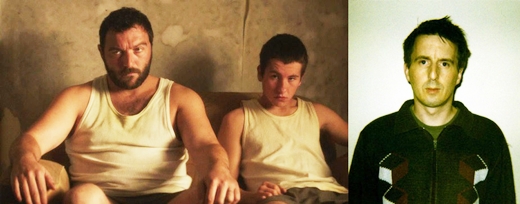“Norfolk” starring Denis Menochet and Barry Keoghan is a haunting thriller about a reclusive father and son whose close relationship is threatened when the father’s violent past catches up with them.
In a recent email interview with the Tehran Times, Radich talked about his father-son drama. The following is the full text of the interview:
Q: What was it that enticed you into making the movie considering the fact that the idea behind it came from two photographs, one of which depicts you as a ten-year-old boy and the other a World War II soldier.
A: Often ideas for stories are kick-started by an image. Many years ago I came across a photograph of a soldier from World War II.
I would stare at his face but be unable to figure out his expression. One moment he seemed heroic, the next shell-shocked. His gaze could be both alert and vacant.
I liked that idea of people and scenarios being read in two completely opposite directions. And then I remembered visiting Norfolk when I was ten years old; how mysterious it seemed to me.
It felt like I was the first person to ever walk these lands and travel down those rivers.
These two images became the two main characters in the film – the father and son.
Q: What was the toughest part about making “Norfolk” and what was the most rewarding?
A: Without question, the toughest part is realizing that the tiny budget you have cannot make the film that you’ve written.
I am incredibly proud of the script but when I glance back at it I am reminded of all the wonderful scenes and characters that we had to let go of. That is tough.
I always knew the budget, I thought I wrote the script knowing the budget, but I was naive in regards to the costs of shooting on the water and how many days we would actually get to shoot the film.
Always the greatest pleasure is being on set with the actors. Your words on paper come to life before your very eyes. This is very exciting.
Q: How did the project change from your original idea to the final production?
A: As mentioned previously, the film is considerably different from the script. I wrote a script that was seventy pages long but the scene count was astronomical.
We had only twenty-two days to shoot something like six or seven or eight scenes per day. Something had to give.
Q: How did your film find its way to the official section of the 34th Fajr International Film Festival?
A: I believe our international sales agent sold the film to Iran at the European Film Market and, as a consequence, it was selected for Fajr.
Q: What clear message do you expect the audiences receive after watching your film?
A: That simply communicating with one another is the key to understanding one another. Keeping thoughts and emotions locked inside leads to colossal misunderstandings. This might seem like an obvious point to make but somehow it’s forgotten the world over.
Q: With all of your knowledge and experience, what is the one lesson you would share with the novice filmmakers?
A: If you can’t please your soul then you can’t please yourself… Stay true to who you are. Do not mimic other filmmakers. Do not bend to fashion. This way your work will be unique. That is something special.
